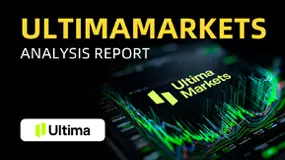Abstract:The South African rand is under pressure in 2022, and experts at Nedbank anticipate further challenging trading conditions over the following 12 to 18 months.

The South African rand is under pressure in 2022, and experts at Nedbank anticipate further challenging trading conditions over the following 12 to 18 months.
WikiFX is a forex broker inquiry app, which allows traders to stay up-to-date with all the latest forex news all around the world. The app is available on the appstore and playstore.
The banking group's examination of the market forces at work on Monday (5 September) revealed that the prognosis for the rand and other emerging market currencies continues to be undermined by the underlying global situation.
However, local problems, particularly load shedding, have been a big factor, and political uncertainty is encouraging risk-averse behavior.
The rand has been under constant pressure over the past three months, according to Nedbank, with the most significant depreciation occurring against a rampaging US dollar that dominated global markets and was supported by the Fed's aggressive rate hikes and hawkish language.
According to the bank, interest rate differences between the US and other nations appear to have had the biggest influence on currency fluctuations.
Growing indicators of slowing global growth also contributed, supporting the risk-off mood and enhancing the appeal of the dollar. Meanwhile, signs of lower global demand and expectations that the economic recession might worsen into next year caused commodities prices to decline starting in June.
This allayed market concerns over potential supply interruptions brought on by Russia's ongoing conflict with Ukraine. However, it claimed that the majority of developing market currencies fell as a result of the global economy's deterioration and widespread risk aversion.
Domestically, the recurrence of extreme load shedding in June and July served as a reminder to investors that South Africa's growth prospects remain dim due to the country's severe and escalating electricity shortfall, which has no easy solution.
Nedbank stated that the charges of misbehavior against president Ramaphosa's handling of a theft at his Phala Phala property in 2020 added to the unfavorable emotions locally and created more uncertainty, weakening his position before the ANC's elective conference in December.
As investors attempt to predict the magnitude and timing of the US interest rate peak, risk appetite is likely to remain erratic. At the same time, investors will be on edge due to the developing global recession. Commodity prices will be impacted by a worldwide recession, the group predicted.
Given the numerous uncertainties and the changing environment, there is still a high chance of a global recession, whether as a result of ineffective policy or fresh geopolitical shocks. The tight global financial environment, the global crisis, and declining commodity prices are all extremely dangerous to emerging markets.
According to Nedbank's model, the rand is expected to average R17.14 per month in September and R17.00 by the end of the year, with the odds likely to continue against it for the next 18 months.
The rand is predicted to fluctuate in 2023 between roughly R17.00 and R17.62 to the dollar, with an expected R17.15 yearly average.

The market's perception of the short-term respite is that there has been a slight “correction,” as the initial concerns about global inflation, the impact of Russia's conflict in Ukraine, and the rate of US interest rate increases have largely been resolved and should now be reflected in the long-term performance of the US dollar, according to Nedbank.
The bank did, however, predict that the rand would continue to be exceedingly erratic, swinging with the world's appetite for risk.
We continue to expect the rand to end the year at stronger levels than they are right now. The risk to our prediction remains skewed to the downside given the overall situation, it said.
The rand, which was trading at over R17.00 to the dollar during the week as Fed Chair Jerome Powell hinted that the US Central Bank will maintain hiking interest rates to manage inflation, was caught in the crossfire of a surging dollar last week, according to Citadel Global.
With trading at the following levels, the rand got off to a rough start this week.
ZAR/GBP: R19.91
ZAR/USD: R17.30
ZAR/EUR: R17.17











